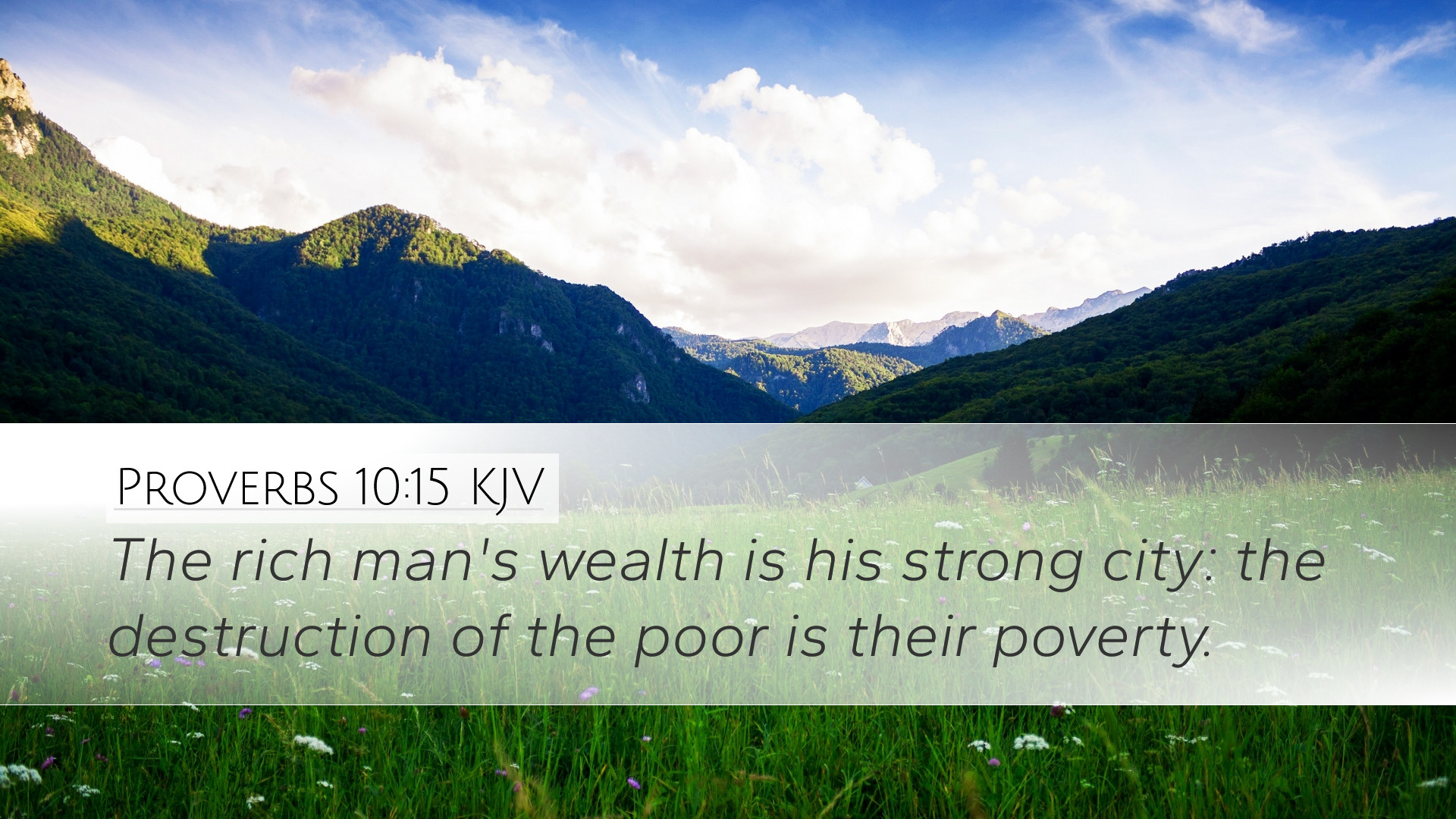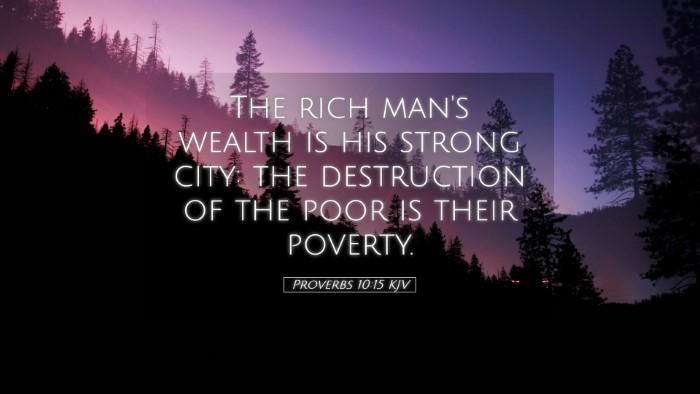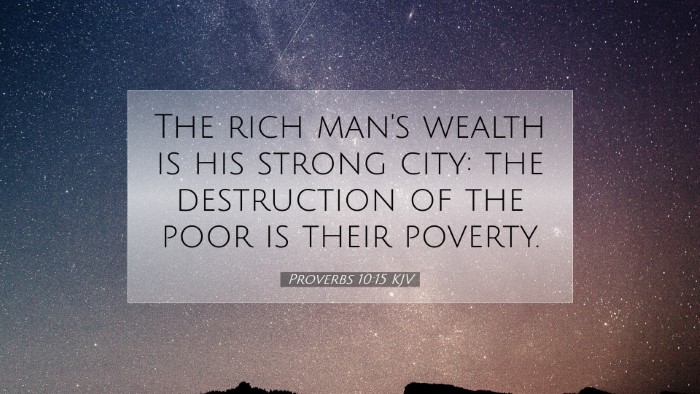Commentary on Proverbs 10:15
Verse: "The rich man's wealth is his strong city: the destruction of the poor is their poverty."
Introduction
This verse from Proverbs succinctly encapsulates the contrasting experiences of the rich and the poor. It reflects the biblical theme of wealth and its implications in one's life. Various commentaries provide depth and insight into the dichotomy presented in this verse, shedding light on the spiritual, social, and moral dimensions of wealth.
Insights from Matthew Henry
Matthew Henry emphasizes the metaphor of the "strong city," which symbolizes the security and refuge that wealth provides to those who possess it. He suggests that the rich, due to their resources, can create a sense of invincibility or protection against calamities. However, Henry cautions that this false sense of security can lead to complacency and a reliance on material possessions rather than on God.
- Strength of Wealth: Wealth can provide a stability that is often mistaken for true security.
- Danger of Self-Sufficiency: This reliance on wealth can divert one’s faith away from God.
Albert Barnes's Interpretation
Albert Barnes elaborates on the implications of poverty as indicated in this verse. He indicates that while the rich may have advantages, the poor face the inherent challenges that come with their lack of resources. Barnes highlights that the "destruction" of the poor is not merely financial but also social and emotional, leading to despair and vulnerability.
- Poverty as Destruction: Barnes points out that poverty often leads to a cycle of hopelessness and degradation.
- Social Commentary: Wealth creates a disparity that can erode community and relationships.
Adam Clarke’s Perspective
Adam Clarke presents a more nuanced view of wealth and poverty. He interprets the verse as a reflection on the transient nature of riches. Clarke argues that while wealth can offer protection in this life, it is ultimately fleeting. He suggests that true security comes from spiritual riches, which cannot be taken away.
- Transience of Wealth: Wealth is temporary and offers only a limited form of protection.
- Spiritual Wealth: Clarke encourages a focus on cultivating one’s spiritual life for true security.
Theological Implications
This verse encourages deep theological reflection on the nature of wealth and poverty. It raises questions about the relationship between material prosperity and spiritual fulfillment. The disparity between the rich and the poor is not just a social issue but also a moral one, calling on believers to reflect Christ-like compassion toward those who are less fortunate.
Sociological Context
Within the sociological framework, this proverb can be seen as a commentary on the systemic issues that create and perpetuate poverty. It suggests a responsibility upon the wealthy to be mindful of their privilege and the impact it has on society.
Pastoral Applications
For pastors and church leaders, this verse can serve as a vital teaching point. It opens discussions on stewardship, generosity, and the Church's role in addressing poverty. It may inspire initiatives that bridge the gap between socio-economic classes within the church community.
Conclusion
Proverbs 10:15 functions as a powerful reminder of the dual nature of wealth. Through the insights of noted commentaries, one can see the profound moral, spiritual, and societal implications of the riches and poverty dynamic. As such, it prompts ongoing reflection and action among believers seeking to align their lives with biblical principles.


